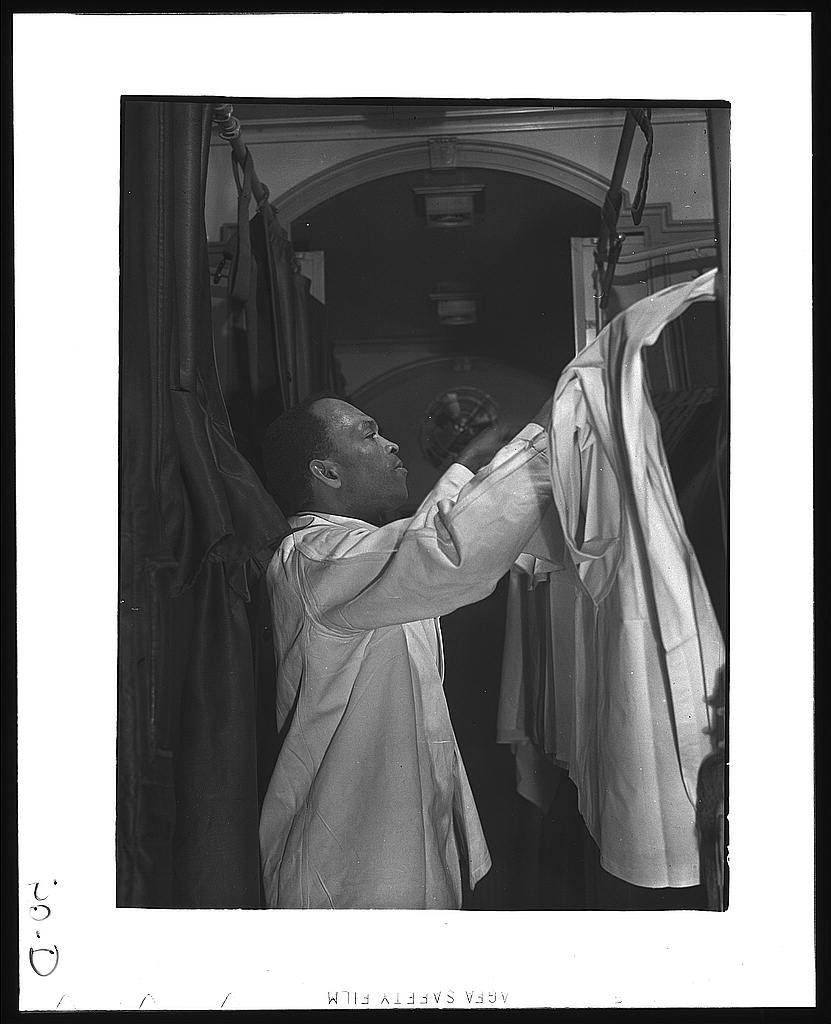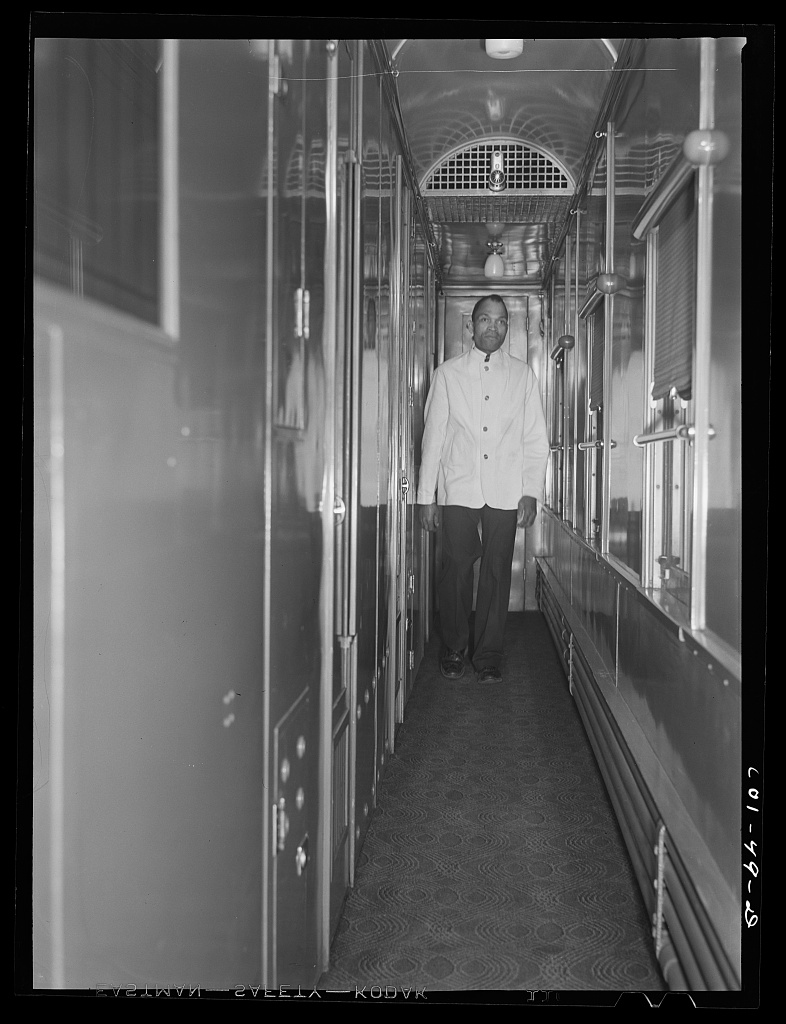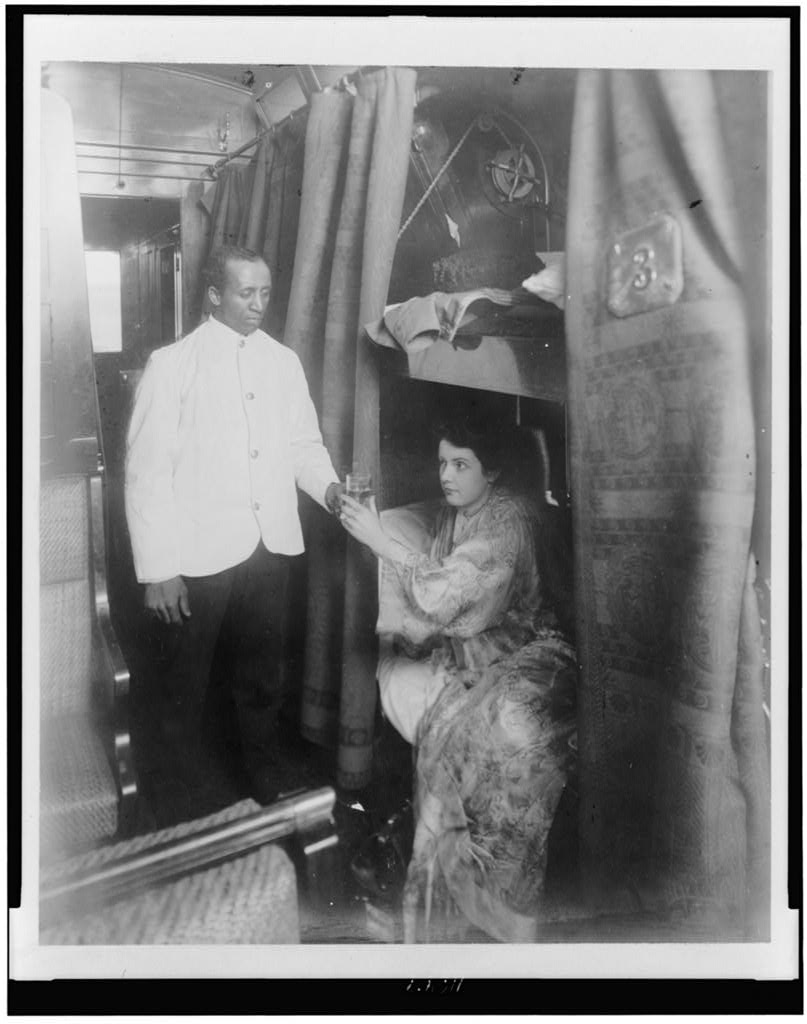Unit
Years: 1920-1942

Economy & Society

Historical Events, Movements, and Figures
When the Civil War ended, more than four million African Americans who had formerly been enslaved were legally free. Unfortunately, the conclusion of the war did not suddenly change the White Supremacist culture and ideology that existed, particularly in the South. This culture was one of the factors that led to the Great Migration in the early 1900s, during which around six million Black people moved from the American South to Northern, Midwestern, and Western states.
Though fleeing the South did not bring about economic, social or political equality in the years of the Industrial Revolution (1760-1940), there was work to be found as new innovations and industries were formed. One of these was the railroad industry. In 1867, George Pullman, a White cabinetmaker from New York, formed The Pullman Sleeping Car Company in Chicago in order to offer a railway experience that featured luxury sleeping and dining cars.
These sleeping cars were staffed by White Conductors and Black Porters, Maids and Laundresses. Pullman exclusively hired Black staff in these roles and particularly sought dark-skinned people who were formerly enslaved, reasoning that he could pay these workers less for longer hours and capitalize on the expectation of race-based servitude established by the American slave system.
During these same years, labor unions, like the American Federation of Labor (AFL), Knights of Labor (KOL), and National Women’s Trade Union League, began organizing workers to make factory labor safe and sustainable. Labor unions fought for safer working conditions, a minimum wage, an eight-hour work day, and a five-day work week. While some labor unions welcomed all workers, the majority refused to recognize Black workers as members.
Efforts to create a union for employees working for Pullman are largely credited to A. Philip Randolph. Through a process known as collective bargaining, The Brotherhood of Sleeping Car Porters was established as the first successful Black trade union in the United States. Randolph was elected its first president in 1925. The union motto was “Fight or Be Slaves.”



The negotiation of wages, benefits, and working conditions between employers and labor unions on behalf of workers, typically through a formal bargaining process.
An organized association or collective of workers in a particular industry, trade, or profession, formed to protect and promote the interests of its members, negotiate wages and working conditions with employers, and advocate for labor rights, workplace safety, and social justice.
A person employed to carry luggage, goods, or other heavy loads, typically in a commercial or transportation setting such as a railway station, airport, or seaport, and responsible for loading, unloading, and transporting cargo, often using wheeled carts, hand trucks, or other equipment. Porters may work in various industries, including transportation, hospitality, and logistics, and perform physical labor in handling and moving goods or baggage.
A sleeping car, also known as a sleeper, is a railroad passenger car equipped with sleeping accommodations, such as berths or bunk beds, allowing passengers to sleep during overnight journeys.
A period of major economic, technological, and social transformation that began in Britain in the late 18th century and spread to other parts of the world, characterized by the transition from agrarian and handicraft-based economies to industrialized economies based on mechanized manufacturing, urbanization, and the use of steam power and machinery.
A prominent African American labor leader and civil rights activist who organized the Brotherhood of Sleeping Car Porters and was a key figure in the Civil Rights Movement.
A "yellow contract" does not appear to be a widely recognized term. Without further context, its meaning remains unclear.